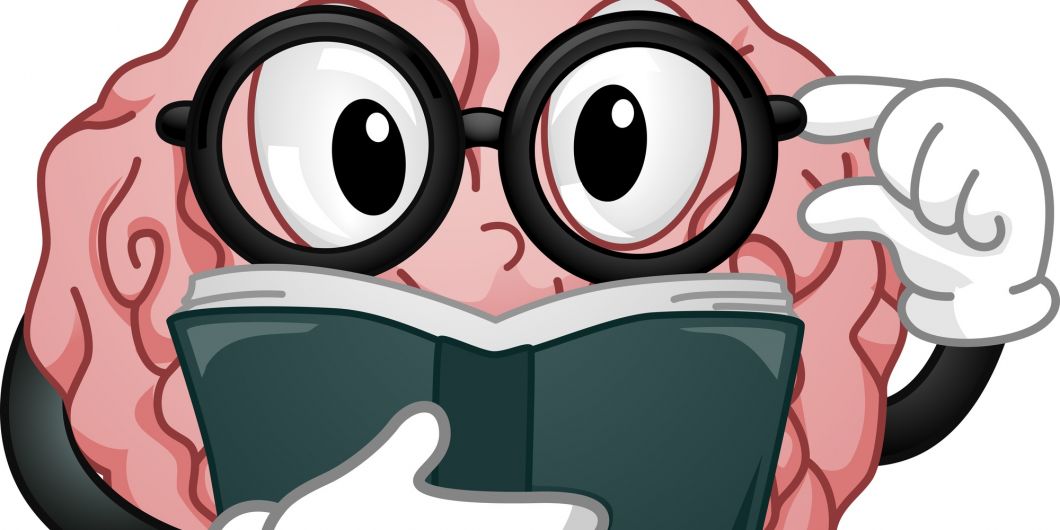Category Archives for "Mental Health"


Intellectual humility is the recognition that our own beliefs and perspectives may be limited or incomplete. It is the willingness to consider alternative viewpoints, admit when we are wrong, and seek out knowledge from others.
This trait has been valued throughout history, but in today's polarized and information-saturated world, it is often overshadowed by arrogance and close-mindedness.

Which therapy offers the best value for an anxious patient using either, Acceptance and Commitment Therapy (ACT), Cognitive behavioural therapy (CBT) or Dichotomy of control.
Acceptance and Commitment Therapy (ACT), Cognitive Behavioural Therapy (CBT), and the Dichotomy of Control are all types of therapies that can be effective for treating anxiety. However, the best therapy for an anxious patient in terms of value may vary depending on the individual's preferences, needs, and circumstances.

Today's articles look at the darker side of love with abuse, which requires reflection and consideration for the reader to contemplate. The 1955 novel Lolita, by Vladimir Nabokov, a Russian-American novelist, handles the controversial subject of hebephilia, a profoundly unsettling and controversial exploration of obsession and the demonic aspects of human nature.
The second is a 1994 film, A Child's Cry For Help, which also tackles the sensitive subject of Munchausen Syndrome by proxy in a dramatic and thought-provoking manner. The mother feeds off the sympathy, attention and benefits that are given to them by their community for taking care of a sick or vulnerable person in their care.

Our previous session discussed how literature and the media manipulated public opinion and shaped people’s beliefs and behaviours.
Today, we have a closer look at Fake News. The Obsessive-Compulsive Disorder Spectrum and a book reflecting the counterculture movement and challenges the traditional values, institutionalisation and incarceration in the 1960s.
Can you guess what it is?

Although health professionals often use the term mental health, physicians recognise that many psychological disorders have physical roots. And this is why loneliness can significantly affect both your physical and mental health. In today’s fast-paced and connected world, it may seem counterintuitive to think loneliness is a prevalent issue. Loneliness is a serious problem that can significantly impact individuals. It is often referred to as the “loneliness epidemic” due to its increasing prevalence.

Mental health is an important and often misunderstood topic affecting millions worldwide. Raising awareness and promoting understanding of mental health issues is crucial to creating a more inclusive and supportive society.
In recent years, literature has emerged as a powerful tool for exploring and shedding light on mental health experiences. Through relatable characters and thought-provoking narratives, texts and their emergence into film enable nonmedical individuals to gain insights into various mental health conditions and foster compassion.

The continuous presence of intrusive thoughts can create a constant sense of unease and fear. They have the power to make you question your own morality and sanity. The toll they take on you is not only mental but physical as well.
The exhaustion caused by these persistent thoughts can affect your concentration, making it difficult to complete tasks or make decisions. Sleep disturbances may also occur due to the constant rumination induced by intrusive thoughts.

Anxiety is a common emotion experienced by people of all ages, but have we misunderstood its impact on teenage girls?
In today's fast-paced, high-pressure world, it is essential to understand the unique challenges that young girls face.

Paranoid schizophrenia is a complex and often debilitating mental illness that affects approximately 0.5% of the population.
Portrayed by a combination of hallucinations, delusions, and disorganised thinking, it can drastically impact a person’s ability to function in daily life.
In this article, we delve into the essential aspects of paranoid schizophrenia, including its symptoms, causes, and available treatments.

In the world of neuroscience and psychology, there are intriguing conditions that challenge our fundamental understanding of perception.
One such condition is agnosia, which disrupts somebody’s ability to recognise or interpret sensory information. Agnosia usually affects only a single information pathway in the brain. If you have this condition, you can still think, speak, and interact with the world.
While it may sound like a relatively simple concept, delving into the complexities of agnosia reveals a rich tapestry of mental processes and brain functions at work. In this article, we explore agnosia, unravelling its various forms and shedding light on what it truly means to grapple with this mysterious disorder.
Join us as we dig deeper into understanding how perception impairment can manifest in fascinating and perplexing ways.

In our quest to unravel the complex workings of the human mind, we often encounter enigmatic conditions that confound our understanding.
One such condition is Alexithymia, also known as (AKA) emotional blindness. This fascinating yet little-known phenomenon profoundly affects one’s emotional well-being.

Mental illness is a growing concern across the world. With advancements in technology, could artificial intelligence (AI) provide a solution to this problem?
Artificial intelligence has already been used in various applications, from self-driving cars to virtual assistants. However, recently, artificial intelligence has gained interest in the mental health field.
This article will explore this concept further.

Do you often find yourself lost in your thoughts, utterly detached from the present moment? If so, you’re not alone. This phenomenon is known as mind-wandering, a common occurrence for many people.

Have you heard of Echoism?
It’s a term used to describe individuals who tend to repeat what others say to avoid conflict or assert their own opinions. In a world where narcissism often dominates our social media feeds, a lesser-known term offers a refreshing alternative: echoism, the other side of Narcissism
Echoism being the opposite of narcissism, and it describes people who prefer to remain in the background and pursue a quieter, more empathetic way of life. In this article, we’ll define echoism and how it differs from narcissism and fits in with other behaviours and relationships. Ulteriorly, how can you identify if you have echoistic tendencies?


Have you ever felt a strong adverse reaction to sounds that most people find insignificant, such as someone eating or tapping their feet, becoming unbearable to listen to? If so, you may be experiencing misophonia, a relatively unknown auditory disorder that affects a small percentage of the population.

In this article, you will learn more about what developmental disabilities are, the associated risk factors, and different interventions that can help individuals with developmental disabilities reach their goals.
Developmental disability
Developmental disability is a term used to describe physical or mental impairments caused by a particular disorders or illnesses. It includes conditions such as Autism, now called an autism spectrum disorder (ASD), cerebral palsy, Down, and Fetal Alcohol Syndrome.
Individuals with developmental disabilities often experience physical, psychological and communication difficulties that appear before 22 years of age and usually last throughout a person’s lifetime.